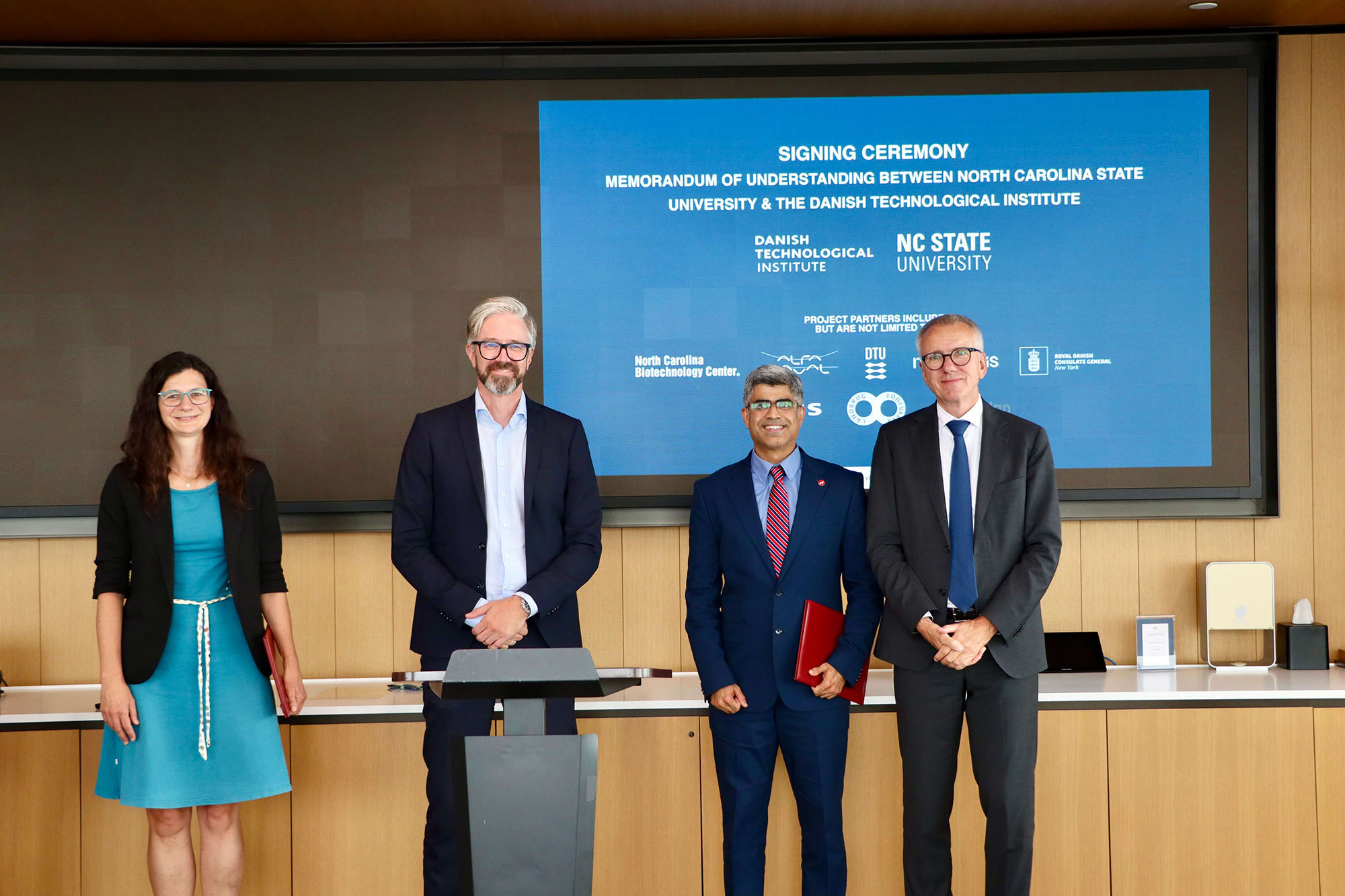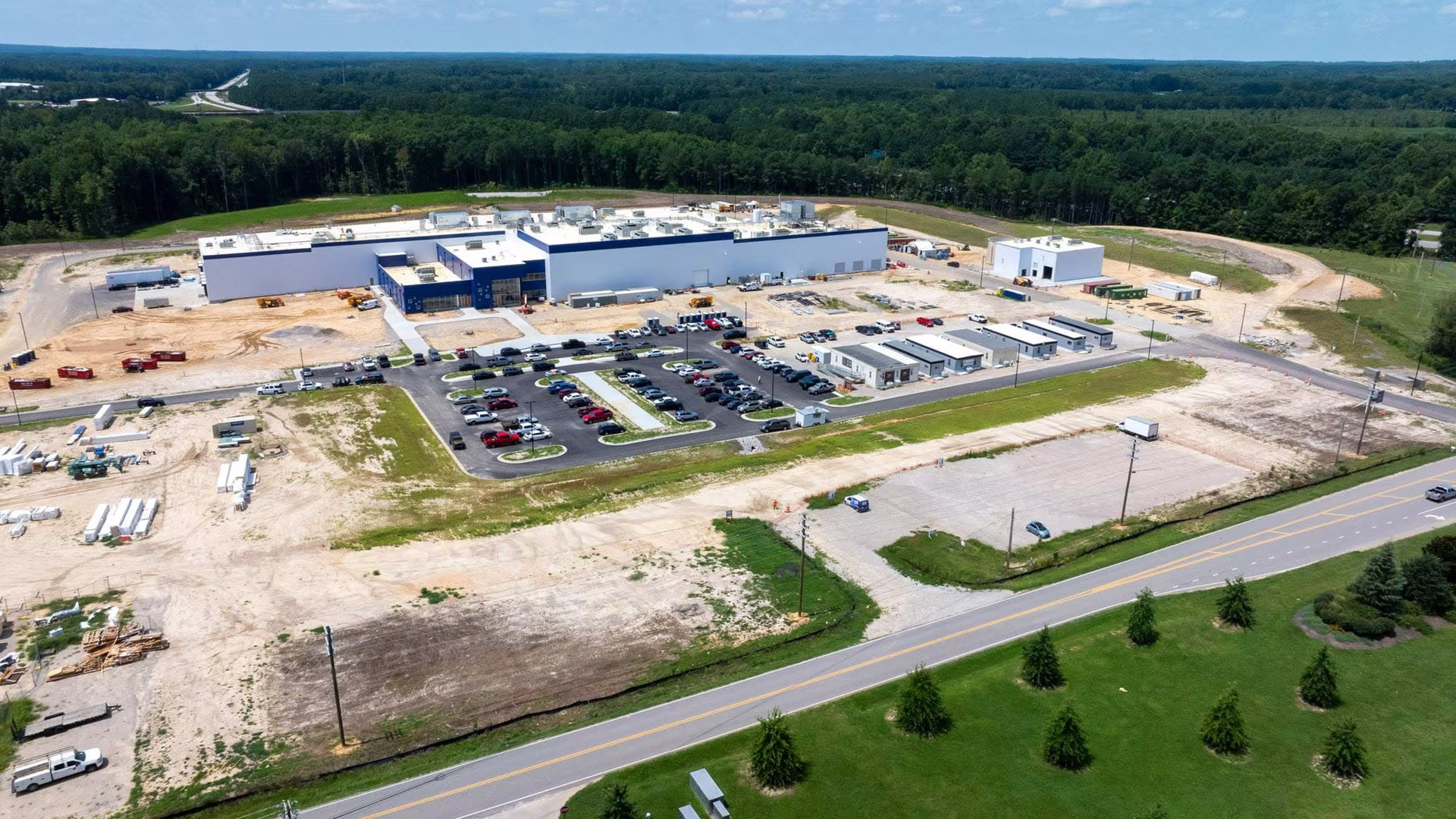

Alfa Laval supports Denmark-USA biotech partnership to advance sustainable food production
Alfa Laval has announced its support for a new partnership between the Danish Technological Institute (DTI) and North Carolina State University (NC State), designed to accelerate innovation in food production using bioprocessing technologies with a lower environmental footprint.
The memorandum of understanding (MoU) was signed on 23 September during Climate Week NYC, at an event hosted by the Consulate General of Denmark in New York. Kristian Hundebøll, chair of the Danish Government’s Growth Team for the Future of Agri-Food and Biosolutions, was present to witness the agreement.
The collaboration aims to connect two of the world’s most active biosolution hubs – Denmark and North Carolina – by building ties across industry, academia, and government. Both regions are recognized for their strength in biotechnology and food innovation.
Alfa Laval’s Food & Water Division, based in Copenhagen, will play a central role in facilitating the initiative. The company said its goal is to help unlock the potential of precision fermentation, biomass fermentation, and other bioprocessing technologies to create new types of nutritious, functional foods. These methods can enrich foods with essential nutrients and flavor, reduce the environmental impact of production, and contribute to healthier diets globally.
“Biotech is reshaping how we produce food and medicine. It is a strong enabler for reducing the environmental impact of the global food system and for building health resilience into an ageing global population,” commented Sammy Hulpiau, President of Alfa Laval’s Food & Water Division. “By linking the innovation ecosystems of Denmark and North Carolina, we are creating a platform for real breakthroughs to produce secure, safe and nutritious food. This collaboration reflects our commitment to scalable, science-driven solutions for the greater good.”
Denmark has emerged as a leading biosolutions hub, with companies and research institutions focused on applying biotechnology to food, agriculture, and health. North Carolina, home to NC State and the Research Triangle Park, has become a global biotechnology hotspot, combining strong academic research with industrial infrastructure and investment. The MoU seeks to formalize collaboration between the two regions and accelerate pathways from research to industrial scale.
For Alfa Laval, which has a long history of working with partners in academia and industry, the partnership builds on its strategy to support global innovation in nutrition and health. The company recently announced the creation of a Food Application & Innovation Centre in Copenhagen, designed to help food producers develop and scale new products for a growing population while minimizing environmental impact.
The emphasis on bioprocessing reflects a growing recognition that traditional agricultural production alone cannot meet the twin challenges of sustainability and nutrition. Precision fermentation and biomass fermentation are seen as powerful tools for creating functional ingredients, improving food security, and reducing pressure on natural resources.
The World Health Organization has identified noncommunicable diseases, many linked to poor diets, as a leading cause of global mortality. At the same time, undernutrition and micronutrient deficiencies persist in many parts of the world. Supporters of bioprocessing argue that its ability to fortify foods with vitamins, proteins, and other nutrients could help address both challenges simultaneously.
Hulpiau said Alfa Laval views its role as providing the technologies and systems that enable scientific advances to be scaled into industrial production. “Real breakthroughs only matter if they can be delivered to people at scale. Our work is about helping innovators move from the lab to the factory floor, so that new foods can reach consumers in a sustainable and affordable way,” he said.
For North Carolina, the collaboration offers a chance to connect its established biotech ecosystem with international partners in Europe. The state has long invested in biotechnology research, education, and workforce training, making it a favored location for global life sciences companies. For Denmark, the agreement reinforces its strategy to promote biosolutions as part of a sustainable growth agenda.
Alfa Laval said the partnership represents an important milestone in transatlantic cooperation on food innovation, one that could accelerate the pace of new product development while demonstrating how regional strengths can be combined to address global challenges.
By fostering collaboration between DTI and NC State, and by drawing in companies and policymakers on both sides of the Atlantic, the initiative is expected to create opportunities for knowledge sharing, joint research projects, and industrial applications.
As Hulpiau noted, the task ahead is both ambitious and urgent. “The global food system is under pressure to deliver more, with less environmental impact, to a growing population,” he said. “Bioprocessing offers one of the most promising routes forward, and international collaboration will be key to realizing its full potential.”
If you have any questions or would like to get in touch with us, please email info@futureofproteinproduction.com








